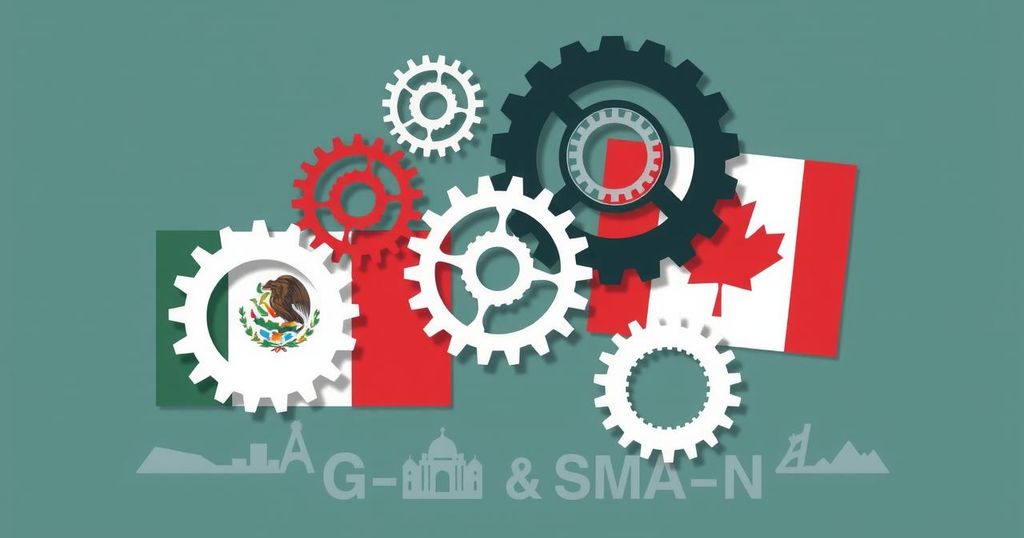Canada and Mexico are presenting evidence to the U.S. to prevent impending tariffs related to fentanyl trafficking. Meanwhile, Mexico has extradited numerous drug cartel members, including Rafael Caro Quintero. The U.S. has halted some trade exemptions for low-value imports to combat drug smuggling, while President Trump is also focused on trade relationships with Ukraine and China.
On Friday, Canadian and Mexican officials presented evidence of their efforts to reduce fentanyl trafficking into the United States to avert impending tariffs imposed by President Donald Trump. These discussions occurred ahead of the March 4 deadline, which includes a proposed 25% tariff on over $900 billion worth of goods from the two nations, with a warning from Trump that progress must be demonstrated to avoid sanctions.
In a significant move, Mexico conducted its largest mass extradition of alleged drug cartel members in a decade, including Rafael Caro Quintero, a notorious drug lord accused of involvement in the murder of a U.S. drug enforcement officer. Alongside Quintero, 28 other suspects purportedly connected to the fentanyl trade were also extradited, highlighting Mexico’s commitment to addressing the opioid crisis.
Furthermore, Mexico’s Deputy Economy Minister Vidal Llerenas indicated that additional trade strategies might be employed to mitigate low-value imports from China, which continue to raise concerns. This follows the U.S. initiative to suspend duty-free exemptions for packages valued under $800, which have previously allowed unchecked fentanyl shipments into the U.S. However, U.S. Customs and Border Protection has paused the suspension of these exemptions until effective screening measures are prepared.
While addressing these issues, President Trump and his administration were also engaged with Ukrainian President Volodymyr Zelenskiy, who visited the White House to formalize U.S. participation in Ukraine’s mineral sector in light of ongoing tensions with Russia. Concurrently, discussions regarding the economic priorities of China were anticipated, as the recent tariffs coincide with China’s annual parliamentary meetings.
The Centers for Disease Control and Prevention reported that synthetic opioids, predominantly fentanyl, claimed 72,776 lives in the U.S. in 2023, underscoring the urgency of addressing the opioid crisis as the U.S. government navigates complex trade and national security concerns.
In summary, Canada and Mexico are actively working to prevent the imposition of significant tariffs related to fentanyl trafficking concerns as they demonstrate progress in combatting the opioid crisis. With critical developments such as the mass extradition of cartel members and ongoing trade discussions, both nations are striving to mitigate the potential economic repercussions. These efforts come against a backdrop of more extensive political engagements, including the U.S.’s relationship with Ukraine and ongoing trade tensions with China.
Original Source: www.usnews.com




